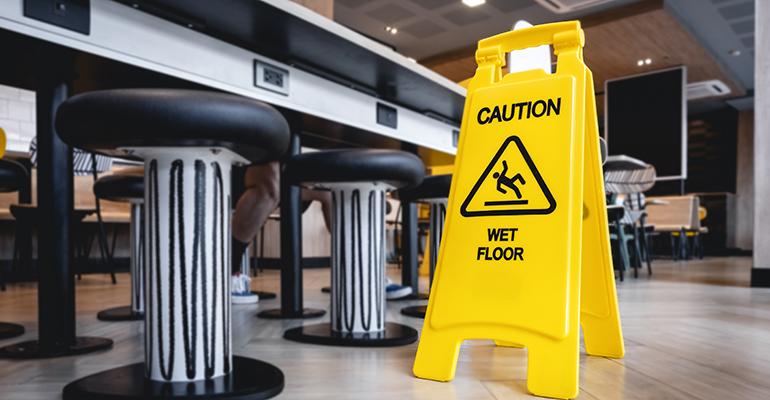Restaurants are reopening for in-person, indoor service across the United States. It is a welcome opportunity to get back to business with some semblance of “normal.” After the devastating impact COVID-19 has had on the industry, restaurants are eager to make sure patrons and staff feel welcome and as safe as possible. And while a message of safety might help ease diners back into booths and barstools, it will also put your restaurant at risk of litigation and what I call “Nuclear Verdicts.”
 Robert F. Tyson
Robert F. Tyson
From high-tech app-driven establishments that offer little-to-no contact with another human being, to mom-and-pop shops that post signage in their windows and promise on their websites, restaurants’ claims of ensuring the health and safety of everyone that comes through their doors are fueling lawsuits and ultimately, potential Nuclear Verdicts — a term used to describe jury verdicts that exceed $10 million or where the total award is disproportionate to the economic loss.
Certainly, restaurants are working hard to create a safe environment for patrons, keeping a vigilant eye on cleaning protocols and dedicating resources to maintaining diner and staff safety amid the pandemic. But the rampant use of statements like “safety is our top priority” in the hospitality industry is increasing restaurants’ exposure to all types of lawsuits, even long after this pandemic is over.
So why can’t you ensure the safety of your clientele?
Because, unfortunately, accidents do happen in the restaurant industry and, tough as it is to say, safety isn’t your number one priority — serving great food is. And when mishaps ultimately do occur, creative plaintiffs’ lawyers are waiting in the wings for the opportunity to use your words against you. They will use your marketing statements to incite a jury to hold you accountable for every person’s safety who walks through your door and award Nuclear Verdicts for your purported negligence.
No matter how well-intentioned, these slogans can — and will — be used in all different types of lawsuits for years to come. From employment claims to slip and falls, your benevolent words will be thrown in front of a jury in an attempt to hold you to an unattainable standard.
What should your message be?
The good news is that you can protect your restaurant from Nuclear Verdicts while also emphasizing the safety of guests and staff to help bring customers back. Just make sure to review your messages to help limit risk and prevent future legal issues. This includes your current social media accounts, advertising, posted communication, and internal policies.
For your restaurant’s legal protection, avoid stating “safety is our No. 1 priority” and terms like “always,” “top,” “first,” or “never,” especially in combination with words like “risk” and “safety.”
If you must reference “safety,” here are a few examples of legally safer messaging:
- “We are addressing the health and safety concerns of our staff and our guests every day.”
- “We care about the health and safety of our guests, our community, and our employees.”
- “The health and safety of our guests and our staff is our concern.”
Providing a safe environment is vital to the restaurant industry, especially during this pandemic. But you must welcome guests back in a way that does not create unnecessary liability for your business. By viewing your marketing messages through a legal lens, you can help ensure that your statements will not be twisted against you by unscrupulous plaintiffs' lawyers looking to make an easy score.
Robert F. Tyson Jr. is a trial lawyer at the national defense firm Tyson & Mendes LLP.
This article does not necessarily reflect the opinions of the editors or management of Nation’s Restaurant News and Restaurant Hospitality.





